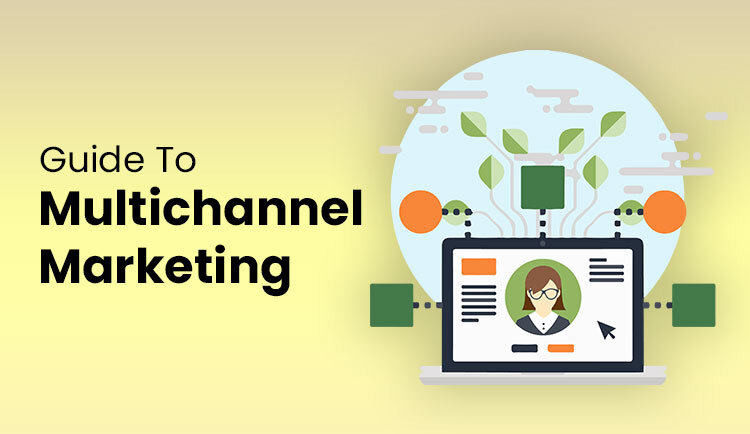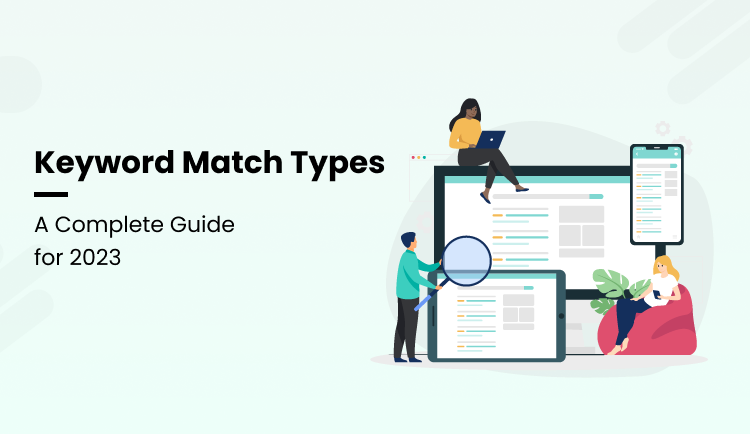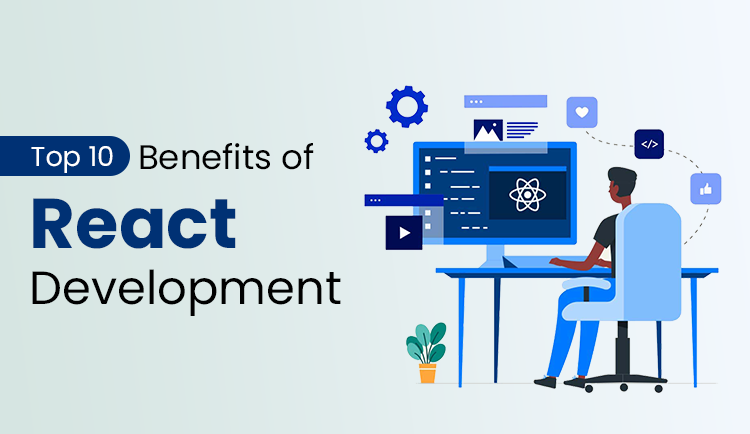
What and How: Guide To Multichannel Marketing
Marketing is in the mainstream today. Your business’ success very much depends on how well you market your products and services to your target audience. Marketers employ numerous marketing strategies, including multi-channel marketing, in order to promote a brand.
Multi-channel marketing is one of the most effective methods to reach a larger pool of potential customers through a variety of channels. Businesses can engage their potential customers at any point in their buying process by using multi-channel marketing strategies. Marketers can use this information to offer more personalized messages based on the recipients’ likely preferences and actions.
So, if you’re keen to learn more about multi-channel marketing, then you’re reading the right post.
In this post, we shall discuss everything about multi-channel marketing, including the benefits of employing multi-channel marketing strategies.
Scroll down to read the full article…
So, What Exactly is Multi-Channel Marketing?
Image Source: Business2Community
The term “multi-channel marketing” refers to the process of engaging with customers through a variety of different channels, including but not limited to websites, social media, email marketing, mobile application, ads, and so on.
Customers may be found just about anywhere; therefore, reaching them via multiple channels is essential. More channels are available now than ever, making multi-channel marketing more critical. Customers now have a greater say in the purchasing process thanks to the growth of multiple marketing channels. More often than not, customers look to several sources before making a decision.
Many simultaneous campaigns and strategies are now the norms in marketing, reflecting the multichannel habits of modern consumers. Businesses can improve their conversion rate and personalize customer interactions by employing multi-channel marketing strategies.
In a nutshell, multi-channel marketing is all about giving the customer options. It allows prospects to respond to your product or service without being limited to purchasing through a single medium.
Ways Of Multi-Channel Marketing
There are many ways a company might communicate with its target audience. Some of the renowned multi-channel strategies include,
- Content Marketing
- Email Marketing
- Social Media Marketing
- Blogging
- Podcasting
- App Marketing
- Text Messaging
- Advertising
- Promotional mailings, and so on.
Every available medium has its own set of benefits and drawbacks. The platforms you decide to use will depend greatly on the nature of your business, your intended audience, and the resources at your disposal.
For instance, a B2B software firm may utilize social media platforms, such as LinkedIn and Podcasting, to promote its brand.
Utilizing multi-channel marketing strategies may not be as easy as it seems. It is because, with so many options, many businesses fail to develop effective cross-channel campaigns. However, reaching your potential clients becomes a breeze once you develop the right multi-channel strategy for your company.
In a situation when numerous channels are in use, it is crucial to evaluate their relative efficacy. Using closed-loop data, marketers know which channels work best and which ones don’t.
Advantages of Multi-Channel Marketing
Image Source: PracticeBuilders
Here are the top advantages of utilizing a multi-channel strategy; take a look…
1. Boost customer confidence in your brand.
Customers are more likely to trust and stick with a company that offers consistent brand messages across their preferred channels.
With multi-channel advertising, you can more easily reach your target audience wherever they may be and provide them with the finest content possible to keep them engaged.
2. Obtain quality leads.
You can only close deals in the sales industry with quality leads. And a winning multi-channel marketing strategy can help you obtain quality leads.
In addition, the more channels you use, the greater the number of leads you will have access to.
3. Fine-tune your targeting.
Thanks to the abundance of available channels, your team will have an easier time narrowing in on specific clients across demographic and behavioral lines.
Some of your prospects may respond better to Instagram and Twitter, while others may be more open to email or SMS communications from your business.
All in all, multi-channel marketing allows you to connect with your ideal customers on the channels they like.
4. Streamline the process of data collection.
Without data, marketing is of no use. And you cannot deny the fact that collecting data is time-consuming and labor-intensive. Nevertheless, multi-channel marketing can help streamline this process.
5. Improve brand visibility.
Employing a winning multi-channel marketing strategy can help businesses improve their brand visibility. There is a higher chance that consumers will become aware of your brand when they see it across multiple channels.
Your brand’s recognition and recall will increase in proportion to the frequency with which your audience is exposed to your material.
6. Cost-effective approach to broaden your clientele.
Multi-channel marketing can help you expand your clientele at a much lower price point than would be possible with other methods.
Unlike traditional advertising mediums like television, digital marketing, and email marketing do not break the bank when it comes to expanding a company’s clientele.
7. Improved ROI (return on investment)
Last but not least, multi-channel marketing can increase efficiency, decrease overhead, and can result in improved ROI.
While achieving a positive return on investment (ROI) with a single marketing channel is feasible; however, it’s worth adding new channels because they might help your efforts in surprising ways.
How to Develop a Successful Multi-Channel Marketing Strategy?
Here are the steps to create a winning multi-channel marketing strategy; take a look…
1. Know who you’re selling to.
The first step in any successful multi-channel marketing campaign is gathering information about your target audience. You can create a successful customer segmentation based on customers’ behaviors and interests.
Creating a customer-centric marketing strategy can help you maintain a pleasant brand experience across channels. Know that today’s customers want to feel like they are part of a community with the businesses they support.
Marketers may more effectively reach their target audience with tailored messages, product recommendations, and sales tactics by spending time and effort learning about their wants and requirements.
2. Pick the right platforms.
As said earlier, your customers could be anywhere. Therefore, picking up the right platforms is crucial. There are a variety of approaches to spreading the word about your business, but not all of them are created equal.
Promoting your B2B business on Facebook when your target customers are available on LinkedIn is of no use. You can utilize technology, such as artificial intelligence (AI), to sift through their activity data and pin down the hotspots where they spend the most time.
Having this knowledge at your disposal will allow you to select the most efficient methods of communication with them. Know that the more channels you employ, the wider your audience will be. But your selection of marketing channels MUST be appropriate!
3. Establish a unified message.
Make sure your campaign’s message is consistent across all channels, even if they all function independently. While the specific language used in each medium may change, the overall tone, style, and promotions should remain constant.
The most effective multi-channel marketing strategies seek to guarantee customers receive that pleasant experience and messaging through each and every channel, such as email, text message, and social media.
Without a smooth transition between channels, customers will be confused and frustrated, leading to a loss of faith in your business.
4. Keep track of your customers.
Now that your marketing efforts are live, you need to assess how well they are reaching your target audience.
CRM (customer relationship management) software can provide valuable insight into how they interact with your campaign by keeping tabs on customers’ page views, CTA clicks, and email opens.
Using this information, you may direct your campaign for optimum return on investment.
5. Use machine learning and artificial intelligence.
Automation tools, such as machine learning and artificial intelligence, can help you develop effective multi-channel marketing campaigns.
At key points in the customer lifecycle, marketing teams may control all aspects of a campaign across all channels and platforms from a central location.
The ability to prearrange many communications via each channel enables the segmentation required for maintaining high levels of customization.
Marketing automation tools may make this degree of execution more manageable, allowing teams more time to focus on the larger picture.
6. Collect, analyze, and optimize data for each channel.
Collecting data for each channel, analyzing it, and then improving its use is essential for a successful multi-channel strategy.
It is crucial to continually analyze client clicks on various platforms (email, social media, etc.) and optimize accordingly.
Collecting this information and creating consolidated user profiles enables the crucial customization required to guide the overall strategy.
Through this data in hand, marketers may seek to remove any obstacles to the purchase process for their target audience and hone in on them with loyalty programs, multi-step campaigns, and retargeting initiatives.
7. Implement a unified approach to customer service across all channels.
The quality of the customer’s experience is a key differentiator in the marketplace. Consistency is just as crucial as the quality of the client experience.
Whether a customer interacts with your brand digitally, in-store, over the phone, or a combination of these channels, they should always get a holistic experience of your brand.
If your multi-channel marketing strategy doesn’t aim to provide your customers with the best customer experience, you’re likely to lose the loyalty of your clients.
Wrapping up…
So, that’s all about multi-channel marketing. Employing the right multi-channel marketing strategies can help your business tremendously. All you have to make sure is to pick the right mediums to get the best outcomes!




